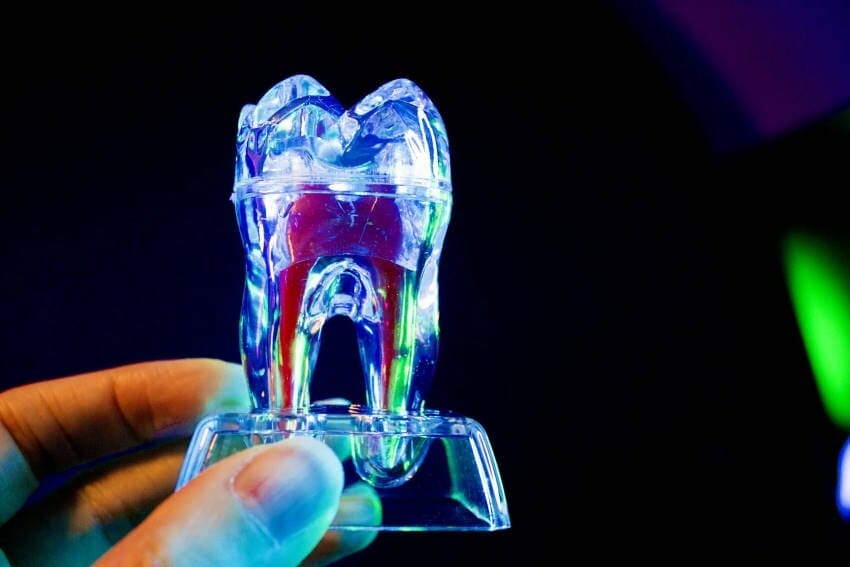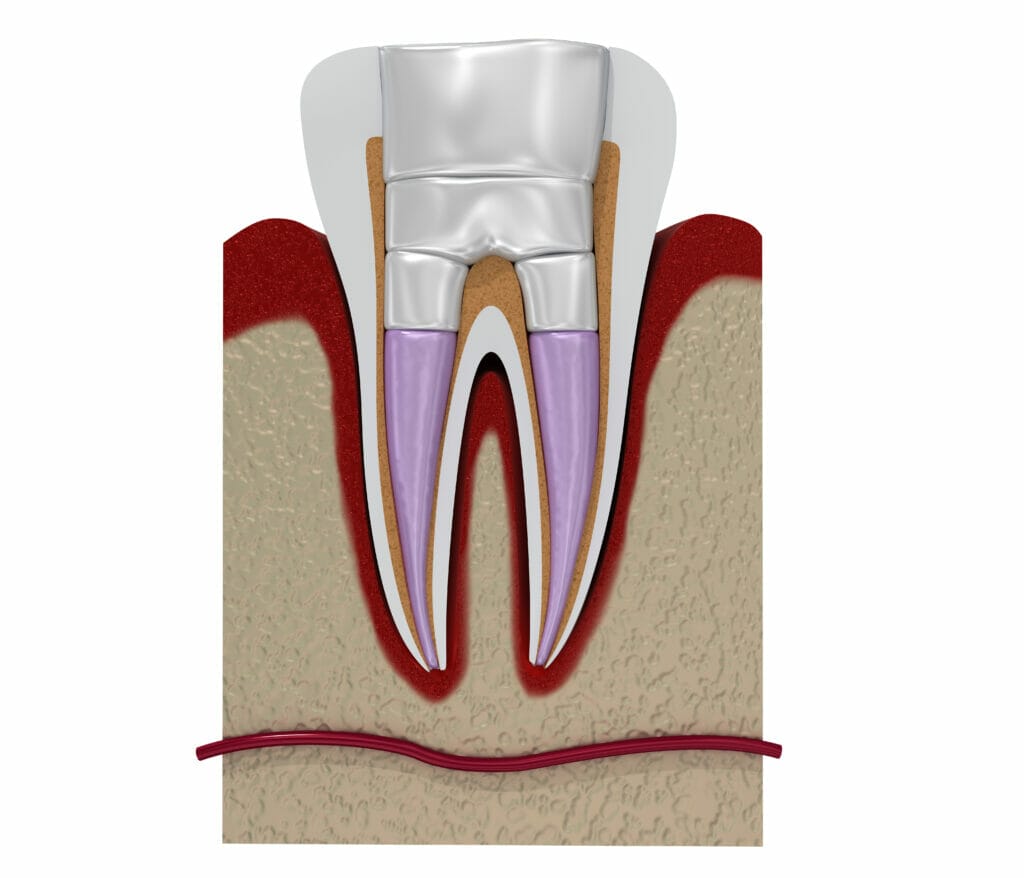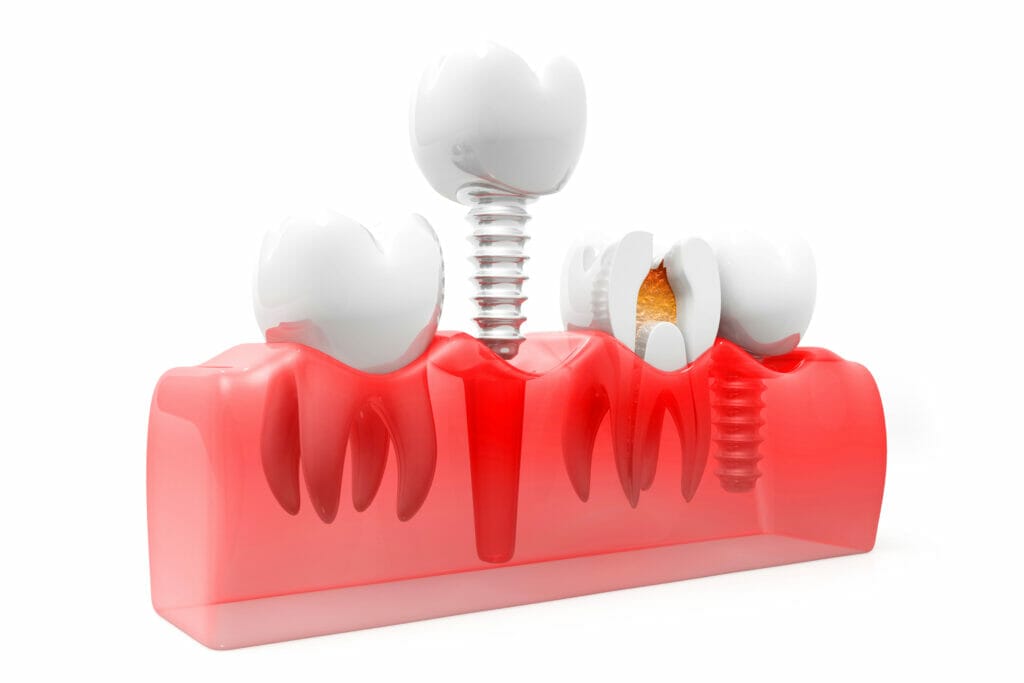
My name is Kyle Hornby and I am a Dentist in Kitchener-Waterloo, Ontario. A few times each week, I present a dental topic and tackle patient questions to help elevate the dental knowledge made available to the general public. This week, I'll address a common patient quandary: root canal or extraction?
Addressing this common treatment decision will allow me to explore root canal treatments and dental extractions. Specifically, I'd like to help people to understand when root canal treatments are likely to provide a great long-term result versus when tooth extraction may be a better solution.
Root canal treatment is costly and protecting your tooth with a dental crown only adds expense. You deserve to have a good prognosis for the long-term success of your treated tooth!
First, let's chat a bit about the basics of root canal treatment so we can understand when they work well and when they don't.

Root canal treatment is probably the most dreaded procedure in all of Dentistry. In fact, root canal treatments provide pain relief when patients experience severe tooth discomfort. Here are the most common reasons for root canal treatment:
To get a great result with root canal treatment, you need a complete and thorough job. The goal is to remove all nerve tissue and bacteria (where present) from inside the tooth. It's as simple as that. So, teeth with open nerve spaces or root canals and straight roots are generally easy to treat thoroughly. In contrast, teeth with thin or calcified root canals or long curved roots are more difficult to treat. In these teeth, a thorough result may be harder to achieve.
Your Kitchener Family Dentist will discuss case difficulty and long-term prognosis (the likelihood of long lasting success) with you before you make your treatment decision. They may also chat with you about other factors that make long-term success less likely. So, what are those specific factors?
Successful root canal therapy relies on pain relief, disinfection and a durable tooth for a great long-term outcome. Not all teeth are good candidates for successful treatment for one or more reasons. Here are just a few:
I know, I know, I just wrote about how root canal treatment can alleviate the chewing pain you feel when your tooth develops a crack. Unfortunately, predicting treatment outcomes with cracked teeth is one of the most challenging things to do in all of Dentistry. Sometimes, root canal treatment successfully alleviates pain. Other times, the pain remains post-treatment. Add in the very real possibility that the tooth splits completely at some point in the future and you have a recipe for uncertainty.
How do you determine the size of an abscess? Well, you can visualize an abscess space on a standard x-ray and gauge it's size. The abscess will appear as a dark shadowy area around your tooth root(s). The reason that this area appears dark is that the abscess causes loss of bone in that area. The less bone density in an area, the darker it will appear on your image. Generally, larger, darker regions signal an abscess that is larger and more severe. These infections tend to persist even after treatment and may result in eventual tooth loss. Your Kitchener-Waterloo Dentist will let you know if they think your circumstances will favour a great long-term treatment outcome.
If your tooth lacks support of gums and bone due to gum disease, it may not be worthwhile to spend time and money on a root canal treatment. As with any procedure, you have to take a "big picture" view. If you can relieve tooth pain but the offending tooth is likely to loosen and fail in the near future, then dental extraction may provide the most reasonable course of action.
The #1 cause of tooth failure after root canal treatment is catastrophic fracture. These teeth are brittle post-treatment and require a dental crown to prevent the type of fracture that can render your tooth "unfixable". If a candidate tooth has already been heavily re-built with filling material, performing a root canal treatment will make it even less durable long-term. Often, I will suggest to patients that they consider tooth removal given that root canal treatment and a dental crown can cost them upwards of $2,500 with no long-term guarantees.
Dental extraction is a reasonable treatment option when a tooth has a poor long-term prognosis. Your Dentist can provide dental extraction comfortably and, often, using only local anesthetic. In some cases, patients may opt for dental sedation to reduce treatment anxiety. Post-operatively, your Dentist may prescribe a mild-moderate pain relief medication to enable comfortable healing.
Following dental extraction, the position of remaining teeth can change slowly over time. Sometimes patients find chewing food to be more difficult. They may note that when they chew hard foods it can cause pain on the gums where their tooth once was.
For other patients, they adapt following dental extraction and come to not miss their lost tooth. Everybody is different in this regard.
Luckily, there are a few treatment options for patients who desire a replacement.

Generally, there are 3 options for replacing your missing tooth:
Root canal treatment is a safe procedure when completed thoroughly and meticulously. Case selection, however, is critically important as multiple factors can compromise the long-term treatment success. As with everything in Dentistry, open communication between Dentist and Patient is essential. Patients must be made aware of any unfavourable circumstances in advance of treatment. In some cases, where root canal treatment may have a lower success rate, dental extraction becomes the superior option. Fortunately, there are many tooth replacement options available for patients who prefer to maintain a full compliment of teeth.
By Dr. Kyle Hornby, Kitchener-Waterloo Dentist
Our Kitchener Dental Office is conveniently located in Downtown Kitchener and we are a short drive away for families in Waterloo, Breslau & St. Jacobs. Our central location means we truly offer family dentistry near you!
This article is not intended to be a substitute for professional advice, diagnosis, or treatment. Accordingly, always seek the advice of your Dentist or other healthcare providers regarding a dental condition or treatment.
Services
Routine Dentistry & Tooth Repair
Oral Surgery & Tooth Removal
Prosthetic Dentistry & Tooth Replacement
Protective/Preventive Services
Teeth Whitening
Schedule an Appointment Now
